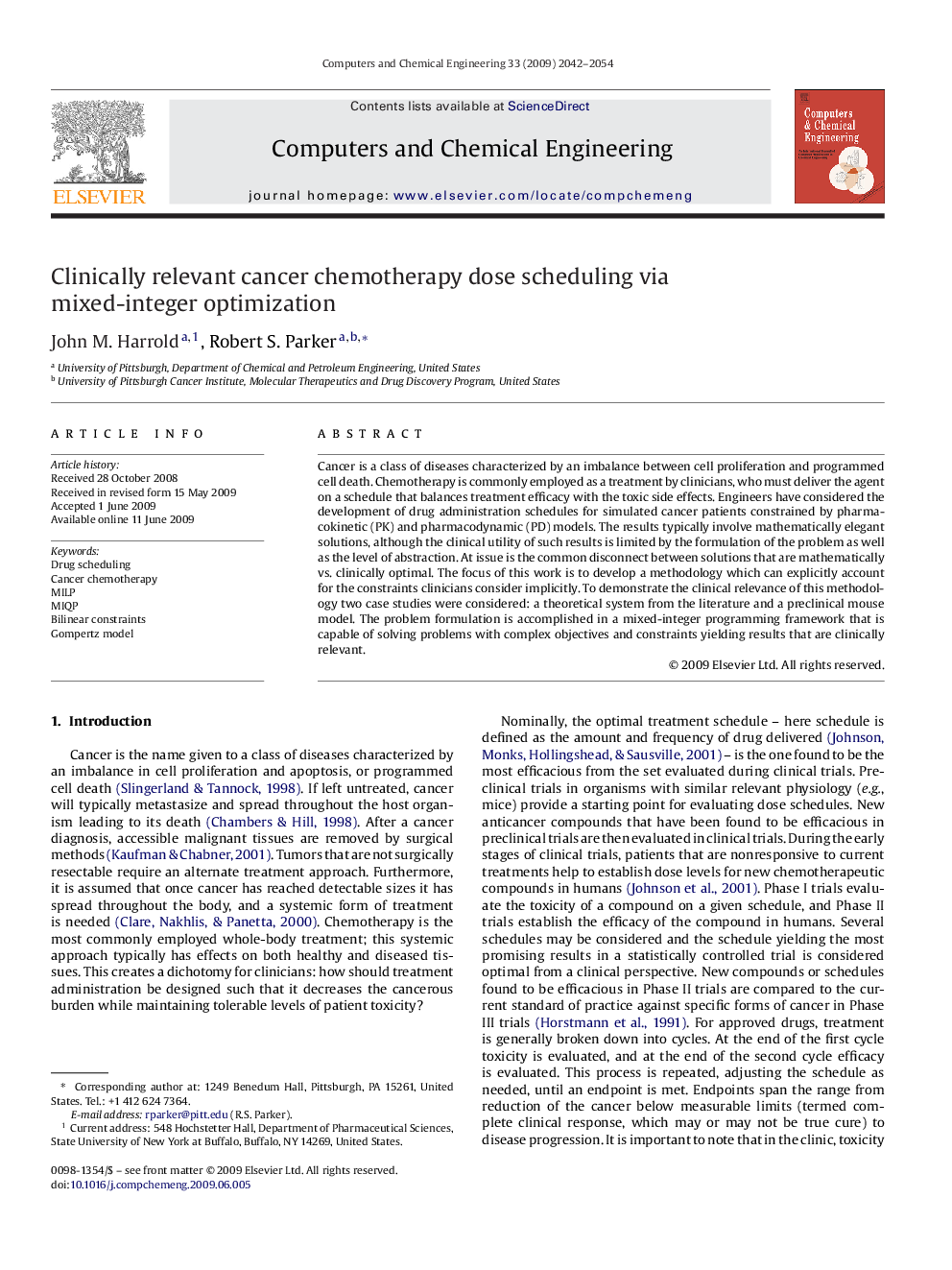| Article ID | Journal | Published Year | Pages | File Type |
|---|---|---|---|---|
| 173445 | Computers & Chemical Engineering | 2009 | 13 Pages |
Cancer is a class of diseases characterized by an imbalance between cell proliferation and programmed cell death. Chemotherapy is commonly employed as a treatment by clinicians, who must deliver the agent on a schedule that balances treatment efficacy with the toxic side effects. Engineers have considered the development of drug administration schedules for simulated cancer patients constrained by pharmacokinetic (PK) and pharmacodynamic (PD) models. The results typically involve mathematically elegant solutions, although the clinical utility of such results is limited by the formulation of the problem as well as the level of abstraction. At issue is the common disconnect between solutions that are mathematically vs. clinically optimal. The focus of this work is to develop a methodology which can explicitly account for the constraints clinicians consider implicitly. To demonstrate the clinical relevance of this methodology two case studies were considered: a theoretical system from the literature and a preclinical mouse model. The problem formulation is accomplished in a mixed-integer programming framework that is capable of solving problems with complex objectives and constraints yielding results that are clinically relevant.
